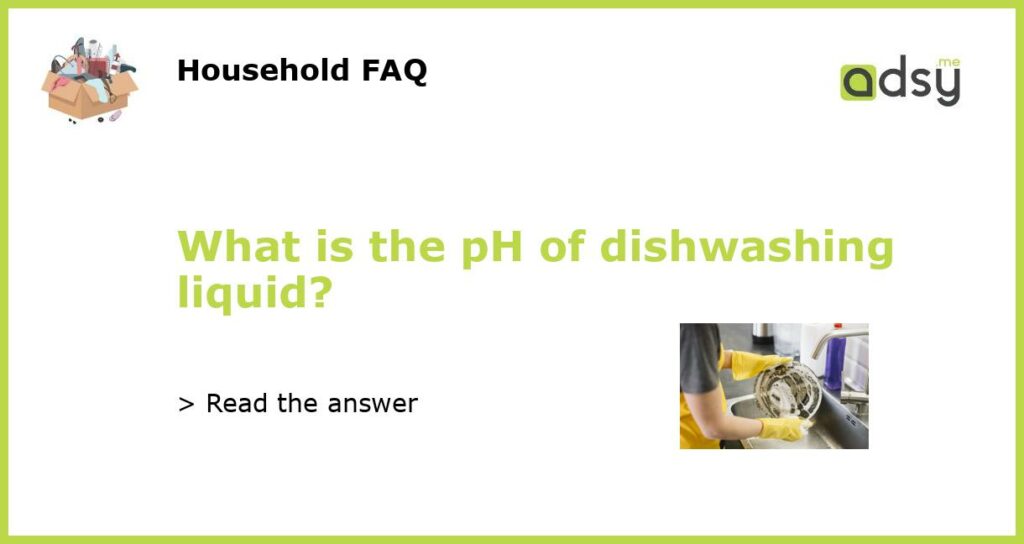What is pH and why does it matter?
pH is a measure of how acidic or basic (also known as alkaline) a solution is. The scale ranges from 0 (most acidic) to 14 (most basic), with 7 being neutral. Different substances have different pH levels, and understanding pH is important for a variety of reasons, including scientific research, agriculture, and even household cleaning.
The pH of common cleaning products
Dishwashing liquid, also known as dish soap, is a popular cleaning product used in households around the world. But what is the pH of dishwashing liquid? Most dishwashing liquids are slightly basic, with a pH range of around 7.5 to 9.0. This is because the cleaning agents, such as sodium lauryl sulfate, are basic in nature.
Why does the pH of dishwashing liquid matter?
Understanding the pH of dishwashing liquid is important for a few reasons. Firstly, it can affect how effective the dish soap is at cleaning your dishes. If the pH is too low or too high, it may not be able to effectively remove oil and grease from your dishes. Additionally, if the pH is too extreme, it could damage delicate materials like silverware or dishes with a non-stick coating.
How to test the pH of dishwashing liquid
If you want to test the pH of your dishwashing liquid, you can purchase pH strips or a pH meter from a scientific supply store or online. To use the pH strips, simply dip them in the dish soap and compare the colour to the chart provided. If using a pH meter, follow the manufacturer’s instructions to ensure accurate readings.
The importance of choosing the right cleaning products
When it comes to household cleaning, it’s important to choose the right products for the task at hand. Understanding the pH of cleaning products, such as dishwashing liquid, can help you make informed decisions about which products to use. Additionally, using eco-friendly cleaning products can help reduce your environmental impact and promote a healthier home environment.






